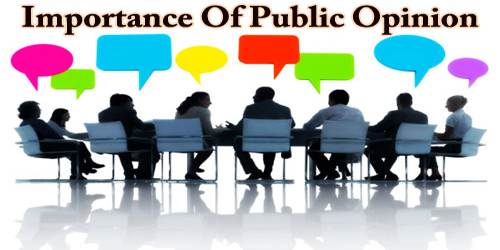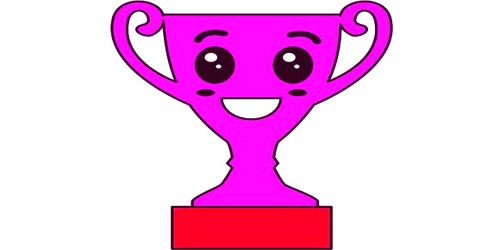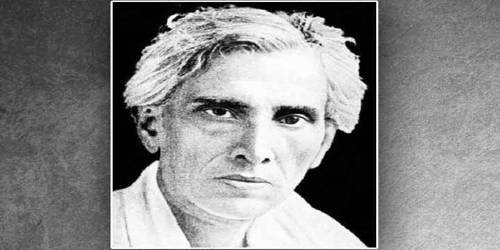Public Opinion is, therefore, not the result of the considered judgment, of the rational man and his appraisal of the issues involved. It is a manufactured pattern of opinions and there are as many opinions as there are groups of men. Opinions are of public and for political purposes. There can be no single opinion.
The term public opinion was derived from the French opinion Publique which was first used in 1588 by Michel de Montaigne in the second edition of his Essays (ch. XXII). The French term also appears in the 1761 work Julie or the New Heloise by Jean-Jacques Rousseau. Precursors of the phrase in English include William Temple’s “general opinion” (appearing in his 1672 work On the Original and Nature of Government) and John Locke’s “law of opinion” (appearing in his 1689 work An Essay Concerning Human Understanding).
The public opinion simply is the collective opinion of the people fearlessly expressed and it has a decisive and abiding value. It is nowadays defined as the verdict of the people out of Court. Democracy is (out of) ultimately run by public opinion. No rule or order can go on for a long time without ignoring or suppressing true public opinion. Like popular sovereignty, public opinion is sure to reassert itself in the long run.
There are certain organs and agencies that govern public opinion. Foremost of these is the press. Freedom of speech or expression is to be assured as the fundamental right in a democracy. Newspapers and periodicals constitute what is known as the fourth estate. Newspapers by supplying true reports and honest and unbiased comments on them instruct public opinion. In public speeches and meetings and debates burning political issues are also trashed. This is finally reflected in the general election of the country. Other public media like Radio, Television, Cinema, and theaters, etc. help in this respect in forming and molding public opinion. That political party is successful in rallying public opinion in its favor finally that wins the election convincingly; Demagogues (moborators) and rabble-rousers may cheat or mislead the public but for a short time.
Public opinion is a congeries of all sorts of discrepant notions, beliefs, fancies, prejudices, aspirations. It is confusing, incoherent, amorphous, varying from day to day and week to week. But in the midst of this diversity and confusion, every question as it rises into importance is subjected to a process of consolidation and clarification until there emerge and take definite shape certain views, or set of disconnected views, each held and advocated in common by bodies of citizens.
It is to the power exerted by any such view or set of views, when held by an apparent majority of citizens, that we refer when we talk of public opinion as approving or disapproving a certain doctrine or proposal and thereby becoming a guiding or ruling power.
Or we may think of the opinion of the whole nation as made up of different currents of sentiment, each embodying or supporting a view or a doctrine or a practical proposal.
Some currents develop more strength than others because they have behind them larger numbers or more intensity of conviction, and when one is evidently the strongest it begins to be called public opinion par excellence, being taken to embody the views supposed to be held by the bulk of the people.
A statesman ignores public opinion only at his peril. History has shown how ineffective it has been to hoodwink public opinion. Julius Caeser and Nero in ancient days or Hitler and Idi Amin (Kampala) could not defy public opinion for, long. However high or mighty the dictator or autocrat might he, he shall have to finally submit to the collective and crystallized expression of public opinion. The French Revolution of 1789 was nothing but an explosive expression of public opinion.
According to Allport (1937), “the term public opinion is given its meaning with reference to a much individual situation in which individuals are expressing themselves or can be called upon to express themselves as favoring or supporting disfavoring and opposing some definite condition, person or proposal of widespread importance in such a proportion, number, intensity, and constancy to give rise to the probability of affecting action, directly or indirectly towards the object concerned.”
Though unclear, this definition points out the nature and function of public opinion in general.
Some are under the impression that public opinion is always guided and determined by rational group judgments. But this assumption is not always correct. Public opinion may not always be formed around true, good, and ideal things. Sometimes the majority opinion may not be rational and based on facts. But public opinion based on such facts may not last long and here is an occasion when it changes in favor of the correct, just and right.
Writing in 1918, the American sociologist Charles Horton Cooley emphasized public opinion as a process of interaction and mutual influence rather than a state of broad agreement. The American political scientist V.O. Key defined public opinion in 1961 as “opinions held by private persons which governments find it prudent to heed.” Subsequent advances in statistical and demographic analysis led by the 1990s to an understanding of public opinion as the collective view of a defined population, such as a particular demographic or ethnic group.
The influence of public opinion is not restricted to politics and elections. It is a powerful force in many other spheres, such as culture, fashion, literature and the arts, consumer spending, and marketing and public relations.
















